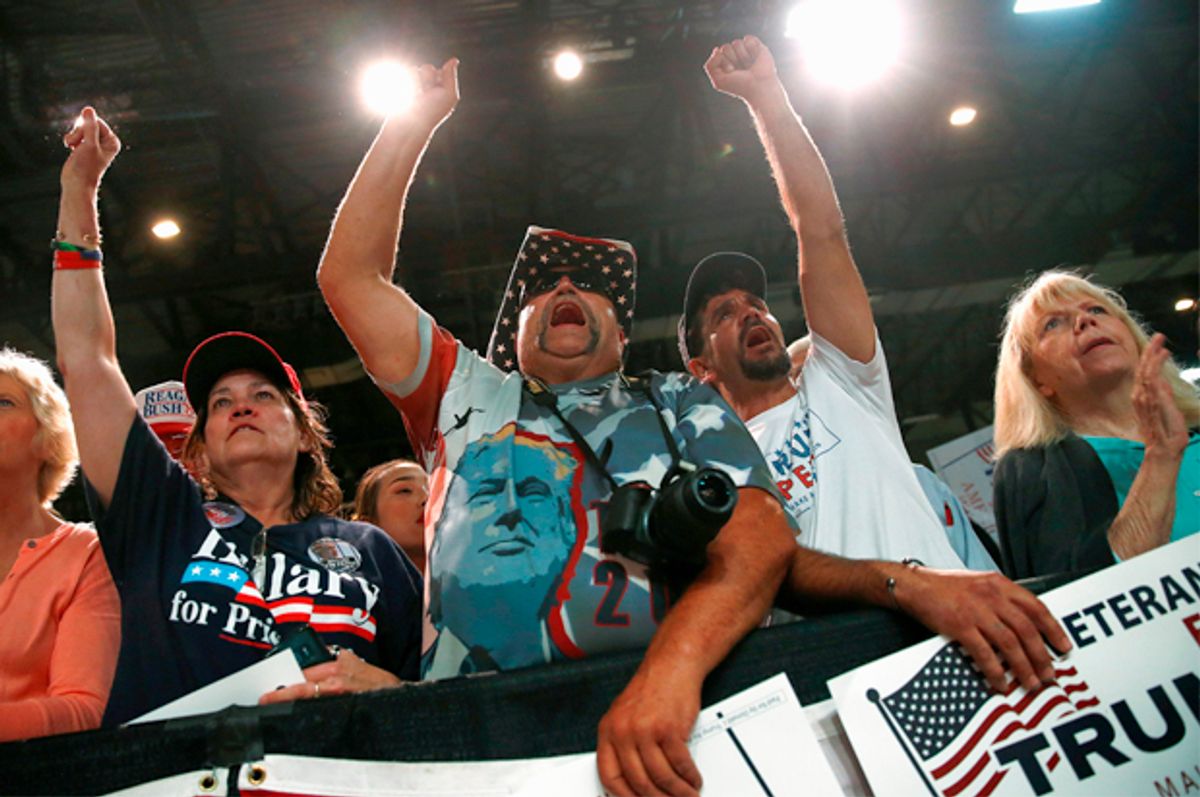After Republican presidential nominee Donald Trump warned of "rigged elections" in "other communities" while campaigning in the Philadelphia suburbs last month, the Pennsylvania Republican Party rushed to file a lawsuit challenging the state’s law restricting so-called poll watchers.
On Thursday, a judge smacked down the GOP’s last-minute attempt to allow poll-watchers to enter any polling place in the state.
Under current Pennsylvania law, any voter can be designated by a party or candidate as a poll watcher and can enter any polling place -- but only in his or her home county. Poll watchers can’t travel across the Commonwealth looking for voter fraud.
Still, Trump has suggested otherwise to his supporters.
“You’ve got to go out, and you’ve got to get your friends, and you’ve got to get everybody you know, and you gotta watch the polling booths,” Trump said at a rally in Manheim last month. “So go over and watch. And watch carefully, because we’re going to win the state of Pennsylvania.”
Following Trump’s lead, the Pennsylvania Republican Party argued in federal court that the law regarding poll watchers is unconstitutional. The GOP’s lawsuit claimed there just aren't enough Republicans in Philadelphia County for the party to recruit and that because some electoral districts are not restricted to a single county, the law violates voters' free speech.
A judge disagreed.
In what the Associated Press described as “a scathing rebuke,” Eastern District of Pennsylvania Judge Gerald J. Pappert said the state GOP's request was "unreasonably delayed." The state party filed for a temporary restraining order on Oct. 21, only 18 days before Election Day.
“There is good reason to avoid last-minute intervention in a state’s election process,” Pappert said. “Any intervention at this point risks practical concerns including disruption, confusion or other unforeseen deleterious effects":
Were the Court to enter the requested injunction, poll watchers would be allowed to roam the Commonwealth on election day for the first time in the Election Code's seventy-nine year history — giving the Commonwealth and county election officials all of five days' notice to prepare for the change.



Shares